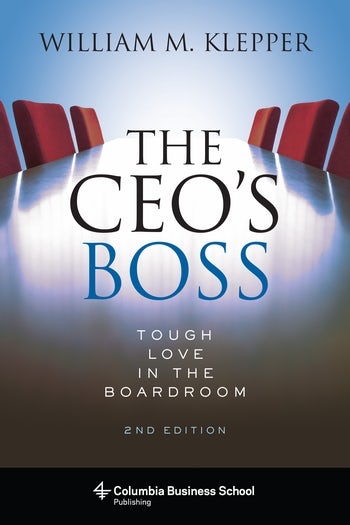At a Crossroads with Mark Saunders

“Like some kind of cosmic crossroads, a lot of brilliant publishers went through CUP in those years, current directors and sales gurus, talented designers and editors. . . . Columbia drew on the ethos of the city—we were expected to channel our mission-driven impulses through a businesslike approach to making books, a discipline that served us all well. I learned to be a manager and a mentor there.”
~ Mark Saunders
Mark Saunders was a committed member of the Association of University Presses (AUP) community, and his loss is being felt profoundly by many of us both professionally and personally. Mark’s advice, knowledge, humor, and genuine concern for others had a significant impact on us. To honor his memory, this week, the AUP has come together to celebrate the people in our industry who embody Mark’s spirit through a special blog tour. Together, we’ll be featuring post about the people whose passion, intelligence, generosity, and curiosity are at the heart of university press publishing—who have helped support the greater community through their efforts and creativity, and who in doing so, have contributed to an informed society.
To kick-off the week, Catherine Hobbs, Sales Consortium Manager at Columbia University Press, has written a post about Mark that illustrates his role as an AUP mentor, leader, and friend.
• • • • • •
Mark Saunders’s tenure at Columbia University Press spanned from 1991 through 1995, first as a sales representative and then as the national sales manager. I didn’t arrive until late 1998, but I was still fortunate to have my career intersect with his. By then, he had moved onto sales and marketing at the University of Virginia Press. I was hired as the southern sales representative for the Columbia Sales Consortium, which provides representation for UVA Press. My position was actually one that he’d created; Mark had hired Columbia’s first southern representative, Bob Barnett, who is now at the University Texas Press. Mark grew our sales force, expanding the number of stores exposed to our books and their potential to deepen knowledge.
It’s not only the flare of “cosmic crossroads,” which showcases Mark’s creative skills as an author, that catches my eye when I read the above quotation from him, but it’s also that he calls our attention to the value of being a mentor. That’s the Mark I knew and counted as a friend for two decades—the guy who held being generous with his experience and knowledge as a necessary life and career skill. Many of us in the university press world and beyond have reaped the benefits of his holding that value in high regard. As a rule, publishing is a congenial industry. We’re a book-, arts-, and scholarship-loving lot. The university press community is also a group that places a high value on informing the public. But it’s people like Mark, willing to share knowledge of the industry, to collaborate on the shaping and resisting of trends, and to help launch and guide careers, who have bolstered and grown our mission.
“That’s the Mark I knew and counted as a friend for two decades—the guy who held being generous with his experience and knowledge as a necessary life and career skill.”
When I was hired as the southern sales representative, I could live in Virginia or Washington, DC. I settled in Charlottesville, Virginia, home to the University of Virginia, and found I crossed paths with Mark regularly. We’d meet for a work lunch to review regional books in depth so that he could gloss over them during sales conferences, focusing instead on books of national appeal and monographs that required extra explanation. He was legendary for spending a disproportionately long portion of his sales conference meeting on the lead title, often in a low and quiet voice, requiring us to lean in and really pay attention while he provided all the backstory on how the book came to be and why the press was publishing it. He knew, and helped me learn, that what sets a university press book representative apart from others is that we have to actually teach both subject matter and its significance to public dialogue in order to help buyers imagine how our titles strengthen their sections. We can’t take our customers for granted; we have to help them find our books and know why doing so is important. He understood that connection to the stores is central to discovery of the scholarship we are in the business of disseminating.
“We can’t take our customers for granted; we have to help them find our books and know why doing so is important.”
As a rep, and understanding that relationships matter, he built friendships with buyers in stores all over the East Coast. Later, he took the time to make introductions for me and others to build our own relationships. He gave me tips on keeping the the buyers’ attention at Barnes & Noble when I took on management of that account. On a few occasions, knowing the importance of direct feedback from the field, he came along with me on sales trips through Virginia. He’d pitch Virginia’s books with enthusiasm and browse the store, pulling together suggested backlist orders, while I pitched for Columbia and our other publishers.
“His relentless faith in the readership potential for scholarly trade titles was contagious.”
He was one of only two reps whom I’ve joined on sales calls while on the publishing side of the book industry. His relentless faith in the readership potential for scholarly trade titles was contagious. Between appointments on those trips, during lunches, and in meetings at his office, we’d talk about music, cars, books, politics, career changes and opportunities, and families. He seemed to blend work, life, and play easily, and that’s a necessary skill when work requires a lot of travel and time away from the comfortably familiar. A favorite haunt in New York was the literary speakeasy Chumley’s—a number of us whose paths crossed with his at Columbia shared drinks with him there. A favorite haunt of his in Charlottesville, including for working lunches, was the Blue Moon Diner, which had a spectacular vinyl collection. He is one of the few people I know who would—because, again, relationships matter—enjoy the entire meal before starting on the work portion of a working lunch. Thoughtfulness and collaboration aren’t to be rushed.
“Thoughtfulness and collaboration aren’t to be rushed.”
Later, as I took over management of Columbia’s Sales Consortium and after he became director of the University of Virginia Press, he and I would have cause to think together about how the Consortium could grow while blending and harmonizing the similarities, differences, and needs of the publishers in our group. It’s rare that one of our presses faces a change or a challenge that is unique. Our lists might have different strengths, but they face the same external pressures. And Mark never shied away from having an opinion nor from being helpful. About a week before he passed, he and I had a phone conversation that touched on a bunch of the mundane systems affecting our work: industry consolidation, management of returns, freight costs . . .That part of the conversation was necessary but admittedly boring. The part I am going to hold onto is when he said, “You’re right; trust your instincts.”
“But that was enough for him to leave his stamp by helping shape its theme, which will be about informing and opening up public discourse.”
The Monday after he passed, he was supposed to join me and several others on a conference call for the University Press Week Task Force. The group was just getting formed for the year; we’d had only one other call. But that was enough for him to leave his stamp by helping shape its theme, which will be about informing and opening up public discourse. At his memorial service the following Friday, there was standing room only, a testament to the many strong relationships he built in his too short life. The music selections, very much reflective of him, were powerful and included Graham Nash’s “Teach Your Children.” That song, beloved by many, has its own cultural significance and in the context of Mark’s service took on a different meaning in regards to his three children, whom he was passionate about helping grow into thriving young adults. It can have significance for those of us who knew him through publishing too. I’m going to try to remember that being one’s colleagues’ sounding board, helping them develop the skills they need to do their jobs well, caring about the turns their careers take, and supporting others’ ideas are traits Mark modeled that shouldn’t be undervalued because they further the goal all university presses share—spreading knowledge.
We invite you to check our blog and those listed below throughout the week to read about those who helped shape and support the greater AUP community and who have contributed to an informed society. Follow along on social media #ReadUP #WeAreUP.
Related Posts
1 Response
Leave a Reply Cancel reply
You must be logged in to post a comment.







A beautiful tribute to Mark. Thank you. It rings so true for those of us who knew him.